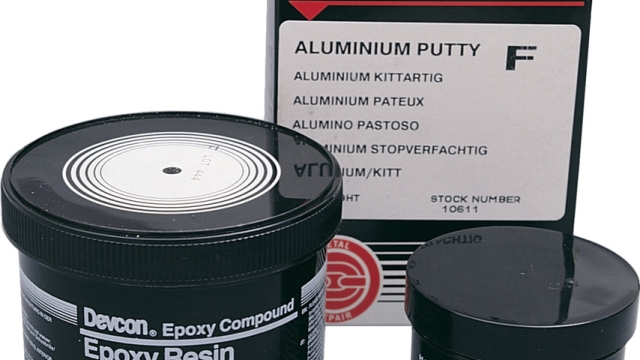Metal putty has long been a trusted solution for repairing and restoring damaged metal surfaces. Whether it’s a small dent, a crack, or even a missing piece, metal putty filler can work wonders in transforming metal objects. With its remarkable properties and easy application, this versatile product has become a go-to choice for both professionals and DIY enthusiasts. In this article, we will delve into the world of metal putty, exploring its potential and uncovering the secrets behind its remarkable transformative power. So, let’s dive in and discover the countless possibilities that metal putty filler brings to the table.
Benefits of Metal Putty Filler
Metal putty filler offers numerous benefits for various applications. Its versatility and effectiveness make it an essential tool for many industries. In this section, we will explore three key advantages of using metal putty filler.
- metal putty epoxy
-
Seamless Repair Solutions: Metal putty filler excels in repairing damaged metal surfaces. It seamlessly fills in cracks, dents, and imperfections, restoring the structural integrity of the metal. Whether it’s repairing a car body or fixing a damaged piece of machinery, metal putty filler provides a reliable solution that withstands wear and tear over time.
-
Easy Application: One of the major benefits of metal putty filler is its ease of application. With its smooth consistency, it can be easily shaped and molded to fit any surface. Whether you’re a professional or a DIY enthusiast, you’ll find it simple to work with, reducing the need for extensive training or specialized equipment.
-
Strong Bonding and Durability: Metal putty filler creates a strong bond with the surrounding metal, ensuring lasting durability. Once applied, it forms a tough seal that is resistant to moisture, heat, and corrosion. This makes it an excellent choice for both indoor and outdoor applications, as it can withstand harsh environmental conditions.

These are just a few of the advantages of using metal putty filler. Its ability to provide seamless repairs, easy application, and strong bonding make it a reliable choice for any metal-related project.
Application Techniques for Metal Putty
When it comes to using metal putty and its filler, there are a few application techniques that can help you achieve the best results.
-
Clean the Surface: Before applying the metal putty filler, ensure that the surface is clean and free from any dirt, grease, or rust. This will help the putty adhere better and provide a strong bond. Use a degreaser or sandpaper to clean and prepare the area.
-
Mixing the Putty: Metal putty filler usually comes in two separate components that need to be mixed together. Follow the manufacturer’s instructions and mix the components thoroughly using a clean mixing tool. Make sure to achieve a consistent color and texture throughout the mixture.
-
Applying the Putty: Once the putty is mixed, apply it to the desired area using a putty knife or a similar tool. Start by spreading a thin layer of the putty filler, ensuring it covers the entire damaged or uneven surface. Smooth out the putty using the tool, removing any excess and achieving a flat and even finish.
By following these application techniques, you can effectively use metal putty filler to repair, fill, or shape various metal surfaces. Whether you’re working on automotive repairs, household fixtures, or DIY projects, employing the right application techniques will help you unleash the power of metal putty filler and achieve durable and aesthetically pleasing results.
Continue reading to discover more about the advantages and versatility of metal putty and its filler.
Tips for Using Metal Putty Successfully
-
Apply on clean, dry surfaces: Before using metal putty filler, ensure that the surface you plan to apply it on is thoroughly cleaned and free from any moisture or debris. Use a mild detergent or solvent to remove any dirt, grease, or rust. Make sure the surface is completely dry before applying the metal putty.
-
Mix the putty thoroughly: Metal putty is typically supplied as a two-component system that needs to be mixed before use. Follow the manufacturer’s instructions and mix the components together evenly. Ensure that the ratio of the components is correct to achieve maximum strength and effectiveness.
-
Apply with precision: When applying the metal putty filler, use a putty knife or a similar tool to spread it evenly over the damaged area. Pay attention to the depth and shape of the damaged part to ensure proper coverage. Avoid applying excessive amounts of putty as it may lead to shrinking or cracking once it cures.
Remember, metal putty filler is a versatile and powerful solution for repairing and restoring damaged metal surfaces. By following these tips, you can effectively unleash the power of metal putty and achieve long-lasting results.
